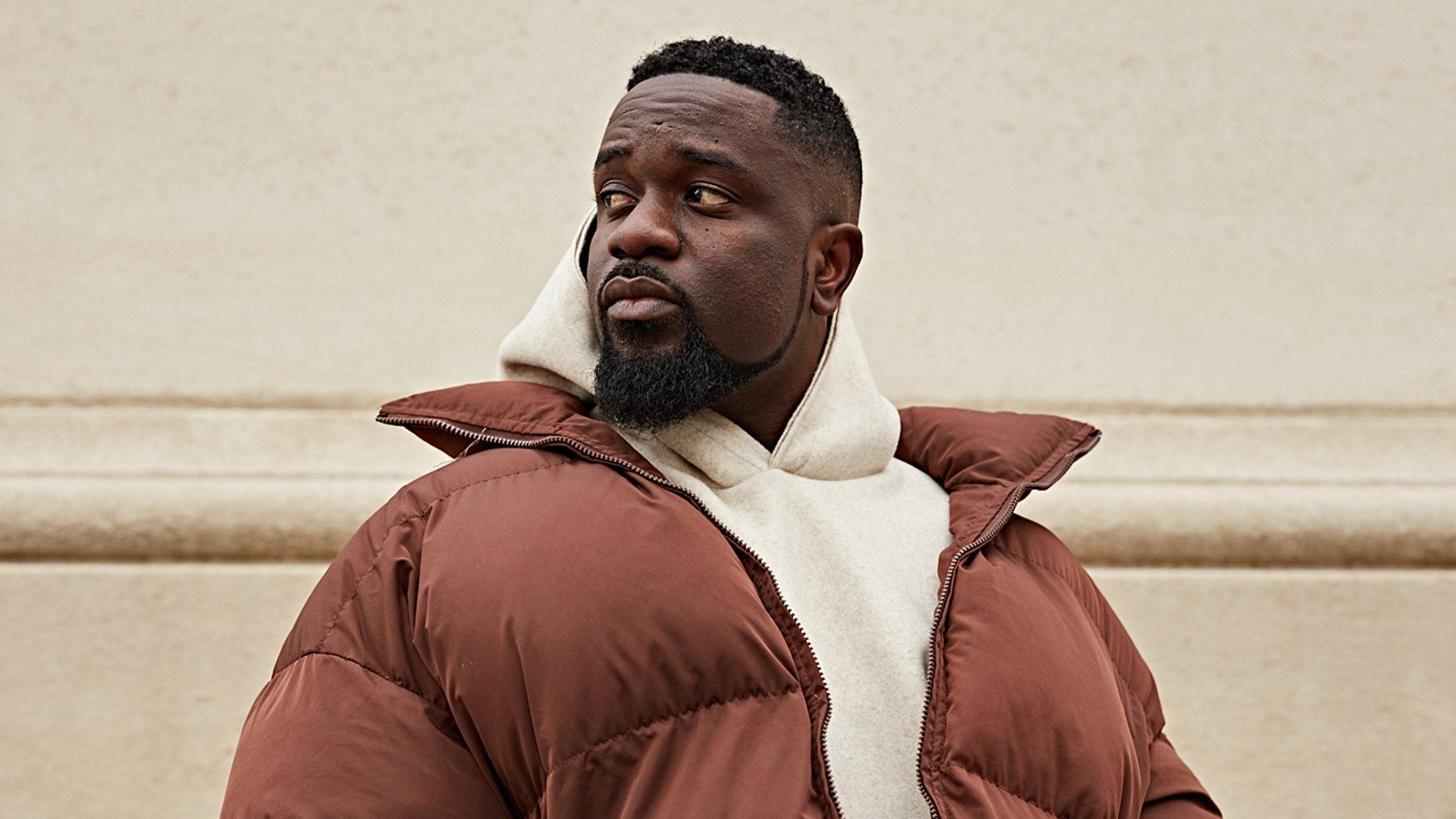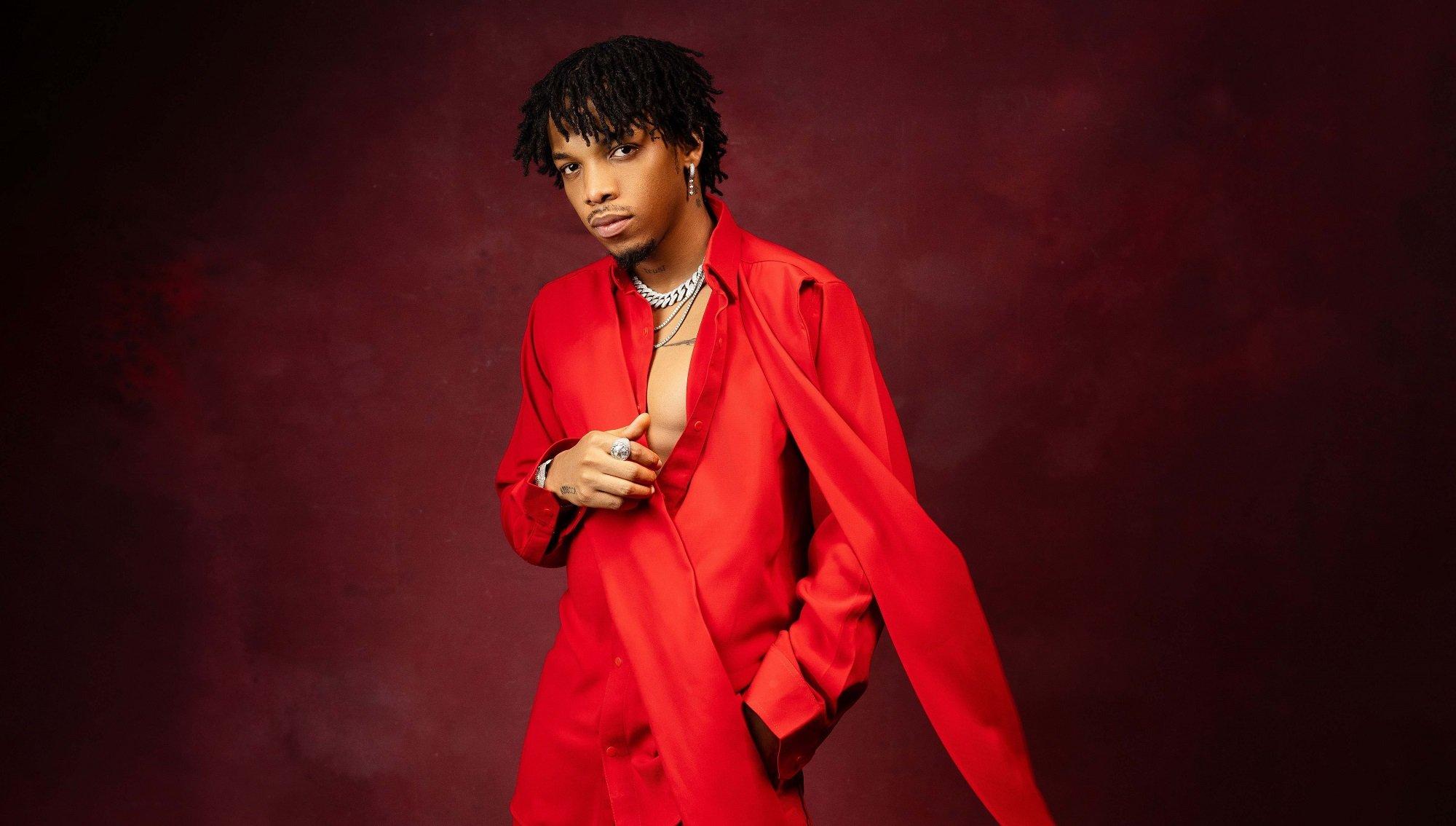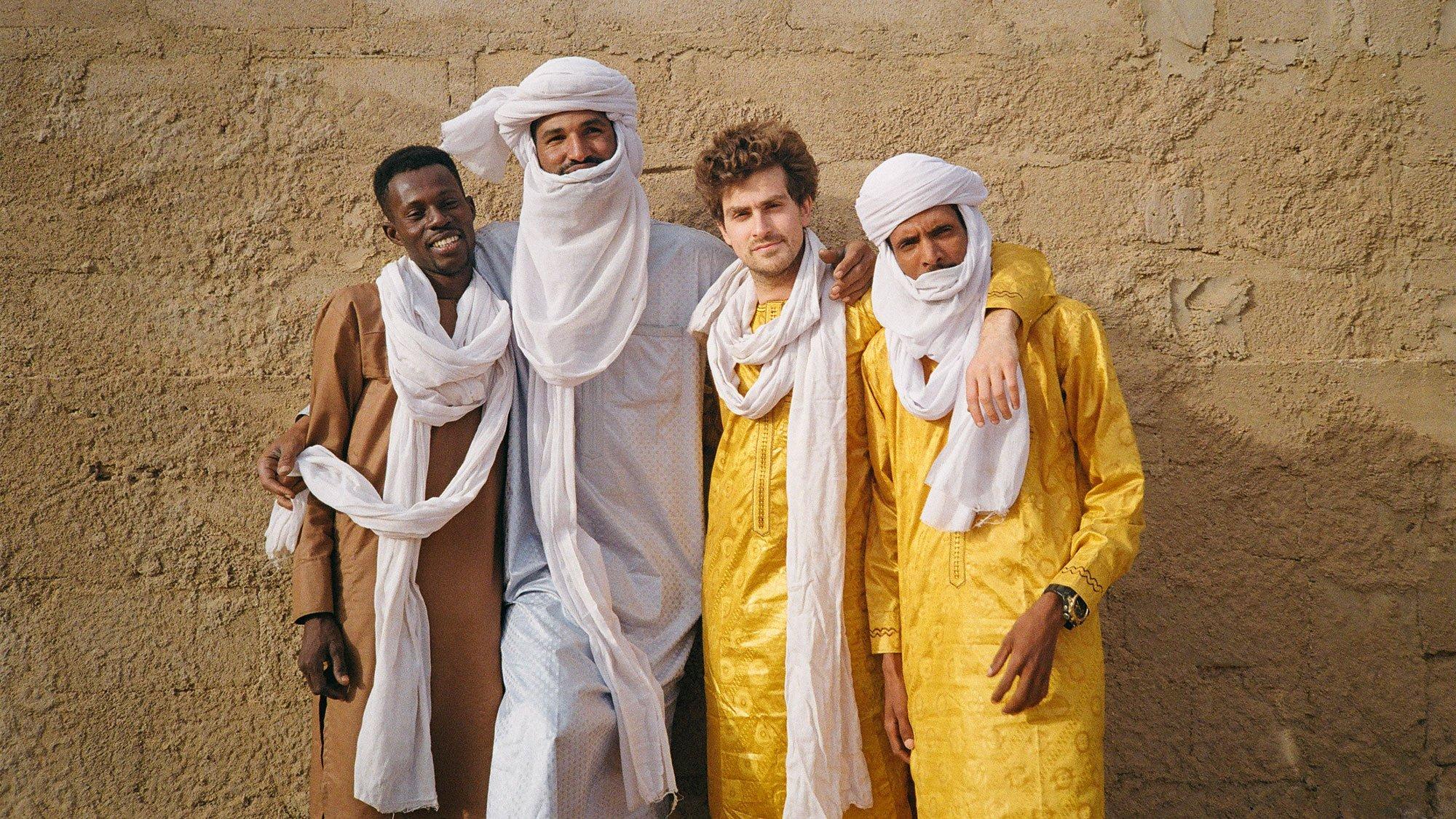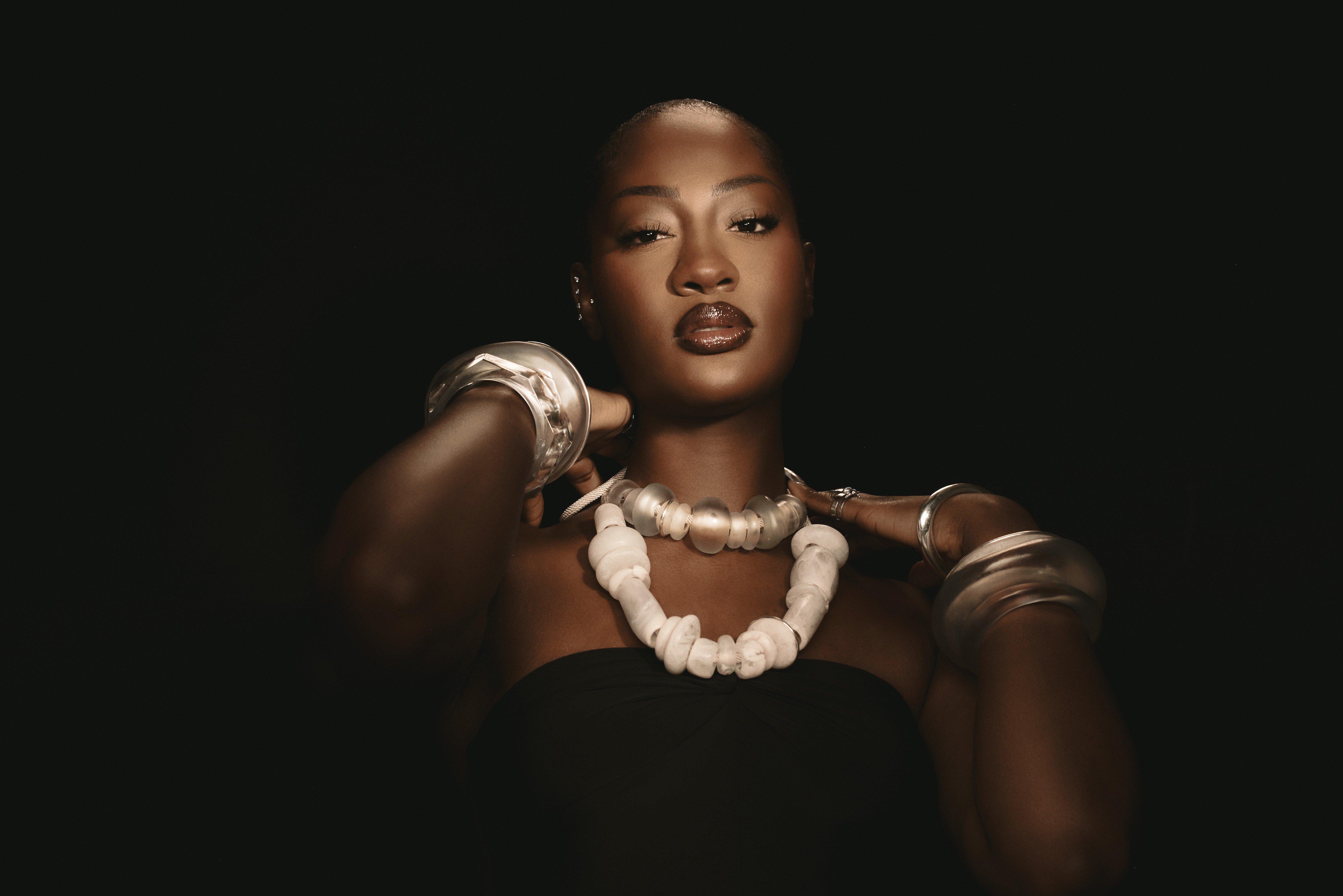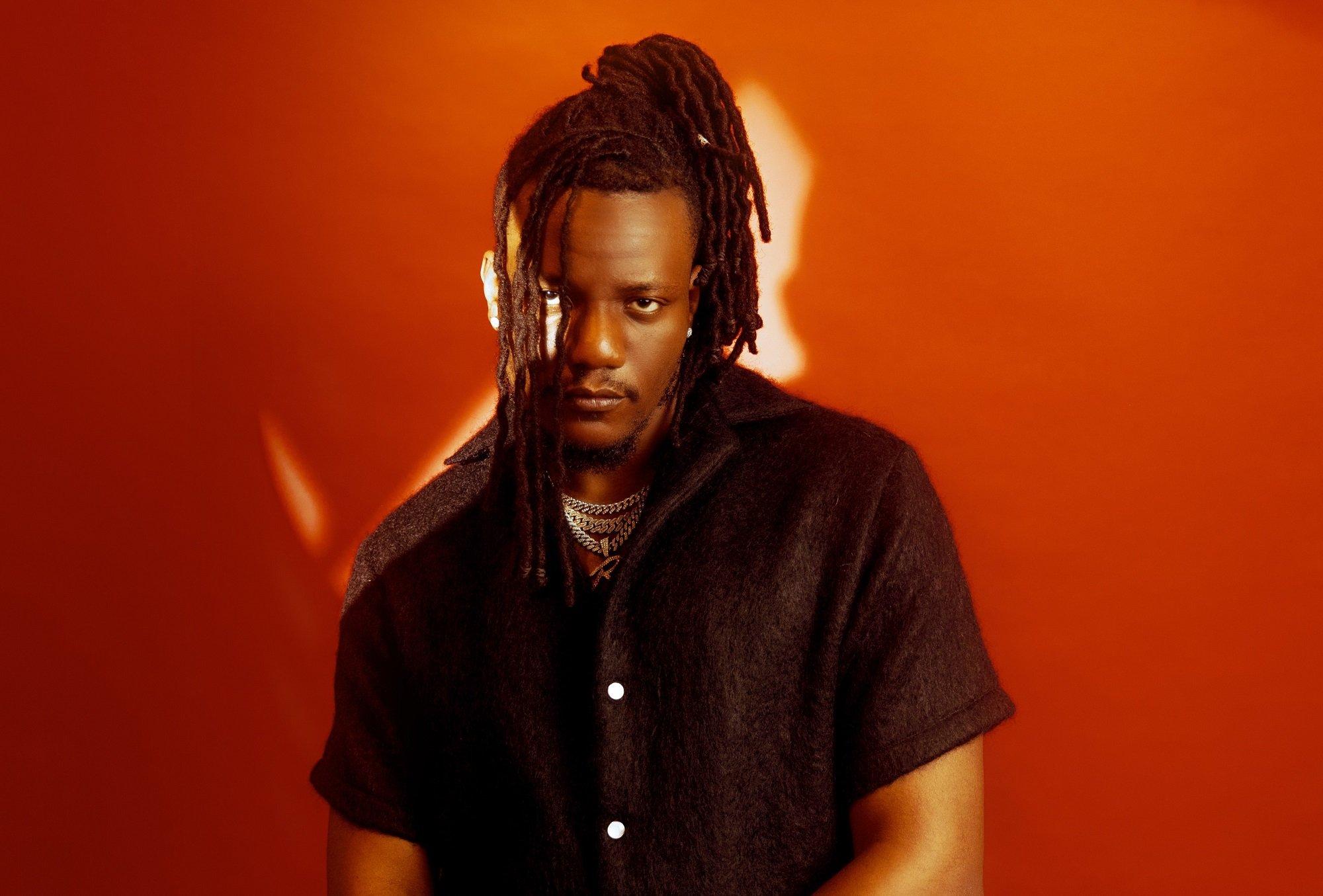It takes a lot of guts to declare yourself the "King of Afro-pop," but Tekno has the hits to back it up.
The Nigerian artist is a staple of the country’s Afrobeats scene, responsible for massive hits such as "Pana" (over 66 million Spotify streams). He’s collaborated with massive artists across the world, starting in 2012 when he enlisted Davido for his breakout single "Holiday." He’s also entered the studio with the likes of Drake and Swae Lee, and Billie Eilish is a professed fan.
Despite this, Tekno hasn’t quite reached the levels of fame that colleagues WizKid and Burna Boy have stateside, but that may be about to change. He’s touring extensively across the U.S. this summer as part of his Back Outside Tour, supporting his 2023 album The More The Better. Tekno also recently inaugurated a label partnership with Mr. Eazi-owned emPawa Africa, defecting from SoundCloud.
The video for his latest single, "Wayo," features the artist as a cab driver going through relationship problems. It's a perfect example of Tekno’s classic pan-African pop, with romantic lyrics and a sweetly melodic sound.
GRAMMY.com caught up with Tekno ahead of his tour, which kicks off June 22 in Columbus, Ohio, to chat about his new music, career goals, and a surprising video game obsession.
You recently released a new single. Tell us a little bit about "Wayo?"
"Wayo" is basically me just tapping into my roots sound, the original pan-African Tekno sound. Our music has morphed and just grown into so many different sounds over the years. And it's very easy to forget that this sound existed before all this music that's playing right now. So I had to deep dive into that. That's basically how I describe "Wayo," I call it a basic Tekno love song. Like it's basically how I started really.
I don’t know if you’re aware that there’s an entire genre of music called "Techno?"
Yes, yes, it’s close to house music.
They’re pretty close. Actually, techno music was invented here in America by Black musicians in Detroit.
Oh, wow. Yeah, people don’t really listen to the techno genre out here yet. They prefer more melodic and groovy music.
So in that case, I did want to ask you about your artist name. Because if people don’t really listen to techno music in Africa, where did your name come from?
I was much younger, and I was looking for a name while I was in church. I’m a Christian, so I was looking for a name that had some form of Christianity to it, even though I knew I wanted to be a secular artist. And then I found this name, "tekno," and it's Hebrew, it means something like "God's people" or "God's word." It's spelt a little bit differently, I can't really remember. But I just liked the meaning of it, and the name stuck with me. And that's how I started calling myself "Tekno."
You've declared yourself the "King of Afro-Pop." Why do you consider yourself to be the king of Afro-pop, and why that instead of the King of Afrobeats or another label like that?
It's more of a personal thing in a way. My favorite artist of all time, forever, will always be Michael Jackson. And Michael Jackson is the King of Pop. So when I named myself the "King of Afro-Pop," it’s because I like Michael Jackson, but it's also because I'm the king of Afro-f—ing-pop. So the name just kind of has a good ring to it.
I want to talk a little bit about partnering with Mr. Eazi; why did you decide to join EmPawa? What do you think the partnership holds for your future, and for the future of music in Africa?
I just love making music so much, that's the goal for me. And I've gone from camp to camp, level to level, and after a while it just starts to wear on you. I don't want to just keep moving from Triple MG to Universal to SoundCloud; I want my own thing that’s a little more permanent. And Eazi is not just my friend, he's my brother. We've been talking about this for years, about doing business together.
There are reasons why it made so much sense for us to come together, but I don't want to share everything. But I like being a priority. If I'm on SoundCloud, I don't want to be on a list of 27 artists where I'm maybe number 18 and my music doesn't get the focus it needs. Like, say I put out a song, and everyone on SoundCloud has gone on holiday. And I'm not aware because I'm Nigerian, I don't know that this day or that day is a holiday in the States. But working with a brother and a team that is home, where we know the system and we understand the culture, it's just way, way better. Because we know ourselves, we know our culture. So working with a brother that has this amazing setup at EmPawa, it just made so much sense.
Read more: Mr. Eazi’s Gallery: How The Afrobeats Star Brought His Long-Awaited Album To Life With African Art
You've collaborated with some American artists before, and Billie Eilish said she is a big fan of yours. Is there anyone in the U.S.-UK ecosystem that you would consider a dream collaboration?
I’d definitely love to work with Billie Eilish. 100 percent. But Drake would always be my favorite collaboration, just because we've been in the studio together. We've talked about it. You know, if I start something I want to see it finished.
He's just an inspiration to the business. Drake, he makes you know that you gotta work, because as big as Drake is he works harder than everybody else. That’s not to say that I wouldn’t love to collaborate with so many other artists whose music I really love.
Are you following the beef between Drake and Kendrick at all?
That was so good, man. I didn't consider that a beef, because when I would watch boxers in the ring fight, let’s say I'm watching Mayweather vs. Pacquiao, it doesn't matter who I'm a fan of. It doesn't matter who wins, I'm entertained.
As a big fan of music, I enjoyed every Drake song and I enjoyed every single Kendrick Lamar song. But if you ask me who I prefer, I would always pick sides and choose. But was I entertained? I definitely was, for sure.
How is working with Americans different from working with Africans? What are the distinctions you find between the two?
Back in Nigeria we don't work in big studios, we work at home. Like, if I want to work with Wizkid I would probably go to his house, or he would come to mine, and we would make music there. But if I'm going to work with Travis Scott, we're gonna go to the studio. If I'm working with Billie Eilish we're gonna go to the studio.
You’re touring North America this year. Do you have any expectations, or anything you’re looking forward to?
I'm just happy to be back outside. I went through this period where I had lost my voice in 2019. And after that happened, and I went through surgery in New York, Corona[virus] happened right after.
And in this whole period, I kind of just stayed away from how much I worked and how much I put out music in the past. I feel like I got used to not being active, so I haven't necessarily been performing for a while. That’s why this tour in the U.S. is called The Back Outside Tour. Because for a long time I haven't been outside, I haven’t been performing, I’ve just been at home.
I like to game [and] I like to make music. I make so much music, but I feel like being home has kind of restricted the amount of music I put out. Because anytime I’m outside, I just get this feeling like I want to conquer the world, I want to do more; I want to put out more.
I want to do more than I've done in the past. So this tour for me is just getting back outside, just getting myself out there and just being on the road heavy. You get lazy if you stay home for too long; we’re habitual creatures. So now I have the mindset that I have to forcefully keep myself out there and just be outside. I'm gonna be touring for three months in the U.S. That's a long time.
You mentioned you’re a gamer. What have you been playing recently?
Recently I've been on "GTA V"; the online is extremely good. Just because it has this plethora of radio stations where while you're gaming you can still bask in this vast playlist. And it’s just fun because you get to play with people around the world. I [also] have this Nigerian community I play with. It's like a way to just be around the people even though I'm in the house, so it's really lovely. And "Call of Duty" is a great one too. But my all time favorite I would say is "Elden Ring." I got locked into Elden Ring for like eight weeks.
Amapiano has really become the dominant sound coming out of Africa in recent years. What do you think will be next?
Tekno sound! They miss it! My sound is like "Game of Thrones," season one to seven.
Not season eight.
Not season eight. I didn’t say that, you said that! [Laughs.]
Basically, I’m not saying amapiano isn’t beautiful music, I’m not saying Nigerians haven’t found a way to evolve it in a way that’s different from the South African type. The South African sound will always be the original one, and every time you record on a South African amapiano beat, you can just tell the difference in the sound. It’s their culture, they own it.
But we [Nigerians] are extremely good at taking your sound and putting our own flavor on it. It’s still your sound, but we play with it. So I feel like it’s been two years of the same [amapiano] and after a while people are gonna want another type of song. I’m not saying Amapiano will go away all of a sudden, it’ll never go away. But people want that pan-African sound. The local rhythm. And Tekno got that.
Learn more: 11 Women Pushing Amapiano To Global Heights: Uncle Waffles, Nkosazana Daughter, & More
Can you go into detail? How do you describe this pan-African sound?
These are songs that always tell a story, it’s never just random. "Wayo" is talking about, "If I invest in my love, would I get a return?" "I no come do wayo" means I'm not trying to play games. I'm serious. If I invest in this love, would I get it back? This thing we call love? Do you truly believe in it? Or you're just with me for the sake of dating somebody?
This type of music always has a deep rooted message in the melodies; it's not just like a regular party thing. There's always a good tale behind the sweet melodies. So like, no, no matter how new school our music goes, this type of sound would always be this type of sound. You're not taking it where. It’s culture.
The video for "Wayo" shows you driving a cab. Did you ever have to hold down a day job like that before you became a successful musician?
Oh my god. I've been a houseboy. I catered for four little kids. They were so stubborn, man, that was the hardest thing I've done in my life. [Laughs.] That would have to be a different interview. I've worked in churches, too. I grew up from a very humble background and I'm grateful to God that I experienced that.
Tems On How 'Born In The Wild' Represents Her Story Of "Survival" & Embracing Every Part Of Herself

